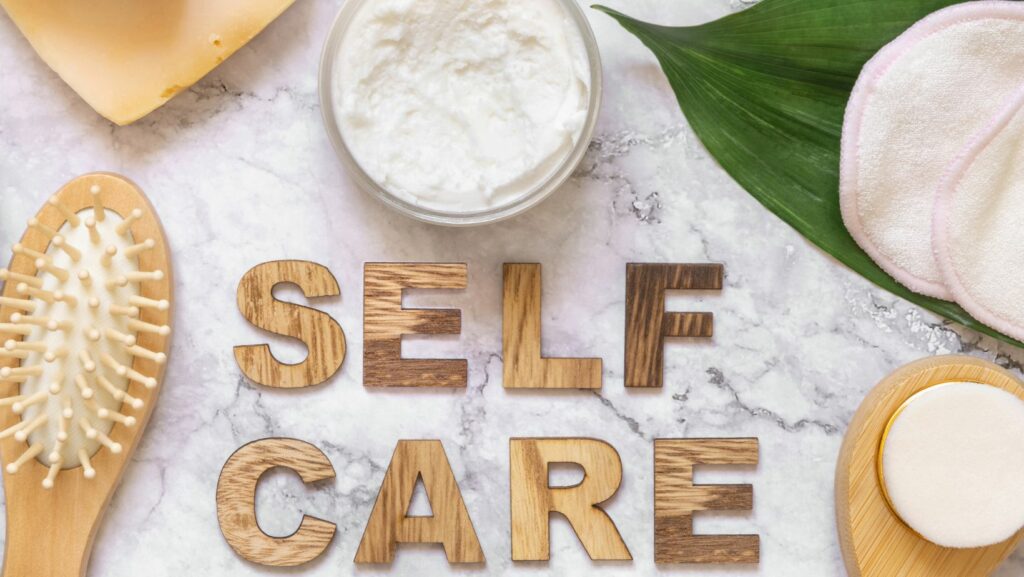In today’s fast-paced world, taking time for self-care isn’t just a luxury—it’s a necessity. With the constant demands of work, family, and social obligations, it’s easy to put personal well-being on the back burner. However, prioritizing self-care can lead to improved mental health, increased productivity, and a more balanced life.
Whether it’s a few minutes of meditation, a daily walk, or simply unplugging from digital devices, small changes can make a big difference. This article explores practical self-care wellness tips that can seamlessly fit into any busy schedule, helping individuals nurture their mind, body, and soul.
Self Care Wellness Tips
What Is Self Care?
 Self care refers to activities and practices individuals engage in regularly to maintain and enhance their mental, physical, and emotional health. It’s a proactive approach to managing stress and promoting overall well-being. Self care includes a range of actions such as maintaining a balanced diet, exercising regularly, getting enough sleep, and taking time for hobbies.
Self care refers to activities and practices individuals engage in regularly to maintain and enhance their mental, physical, and emotional health. It’s a proactive approach to managing stress and promoting overall well-being. Self care includes a range of actions such as maintaining a balanced diet, exercising regularly, getting enough sleep, and taking time for hobbies.
Self care plays a crucial role in managing stress and preventing burnout. With regular self care practices, individuals can improve their mental health, boost productivity, and sustain life balance. For example, engaging in mindfulness exercises like meditation can reduce anxiety and increase focus. Additionally, self care activities contribute to better physical health, reducing the risk of chronic illnesses.
Core Elements of Self Care Wellness
Effective self-care includes multiple dimensions, each contributing to an individual’s holistic wellness. These dimensions include physical, emotional, and mental wellness.
Physical Wellness Tips
Physical wellness is foundational for overall health. It involves activities that improve a person’s physical state and maintain energy levels.
-
Regular Exercise: Establishing a routine that includes activities like walking, running, and strength training improves cardiovascular health, strengthens muscles, and enhances flexibility.
-
Balanced Diet: Consuming a variety of nutrients from fruits, vegetables, lean proteins, and whole grains supports bodily functions and boosts immunity.
-
Adequate Sleep: Achieving 7-9 hours of sleep each night helps in recovery, cognitive function, and mood regulation.
-
Hydration: Drinking at least 8 glasses of water daily ensures proper physiological processes, skin health, and energy levels.
-
Routine Check-Ups: Regular health screenings help in the early detection of potential issues, ensuring timely intervention.
Emotional Wellness Tips
 Emotional wellness involves understanding and managing one’s emotions to maintain a positive mental state.
Emotional wellness involves understanding and managing one’s emotions to maintain a positive mental state.
-
Mindfulness Practices: Activities like meditation and deep-breathing exercises reduce stress and improve emotional stability.
-
Journaling: Writing down thoughts and feelings assists in identifying emotional patterns and dealing with negative emotions constructively.
-
Healthy Relationships: Building and maintaining supportive relationships provides emotional security and reduces feelings of loneliness.
-
Boundaries: Setting boundaries helps in managing time effectively and avoiding emotional drain.
-
Therapy: Seeking professional help when dealing with overwhelming emotions or past trauma promotes healing and emotional balance.
Mental Wellness Tips
 Mental wellness focuses on achieving mental clarity, enhancing cognitive functions, and reducing stress.
Mental wellness focuses on achieving mental clarity, enhancing cognitive functions, and reducing stress.
-
Stress Management: Techniques like yoga and progressive muscle relaxation contribute to lowering stress levels.
-
Continuous Learning: Engaging in new hobbies or learning new skills keeps the brain active and promotes cognitive health.
-
Positive Thinking: Practicing gratitude and affirmations improves overall mental outlook.
-
Mental Breaks: Taking regular breaks from work or daily routines prevents mental fatigue and increases productivity.
-
Cognitive Behavioral Techniques: Applying techniques from cognitive behavioral therapy (CBT) assists in altering negative thought patterns and improving mental resilience.
Each of these tips contributes to a comprehensive self-care routine, fostering a balanced and fulfilled life. By integrating these practices, individuals can manage stress, improve health, and ensure overall well-being.
Overcoming Common Self Care Challenges
Incorporating self-care into daily routines can be challenging, but it’s crucial for maintaining overall wellness. Many struggle with finding time, balancing responsibilities, or feeling guilty for prioritizing themselves. However, small, consistent steps can make a significant difference.
It’s essential to recognize that self-care isn’t selfish; it’s necessary. By setting realistic goals, creating a structured plan, and being patient with oneself, anyone can overcome these hurdles. Remember, self-care isn’t a one-size-fits-all approach.
Finding what works best on an individual level ensures sustainable and effective self-care practices. Embracing these wellness tips will lead to a healthier, more balanced life.

